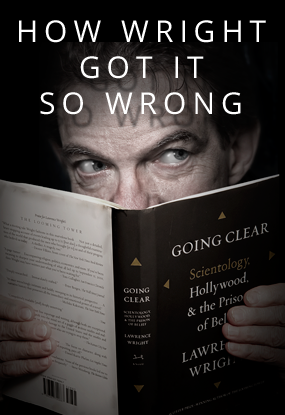A Correction of the Falsehoods in Lawrence Wright's Book on Scientology
Wright describes L.
Ron Hubbard going into seclusion: “Fleeing subpoenas from three grand juries, and pursued by forty-eight lawsuits, all naming the founder, Hubbard slipped away from public view on Valentine’s Day 1980.”>> True Information: The Riverside Superior Court ruled in 1983 that L. Ron Hubbard was exercising his constitutional right of privacy in not publicizing his address. The court refused to appoint an executor to handle his estate, which it ruled was in good order. Judge J. David Hennigan wrote on June 27, 1983:
“The lack of information as to Mr. Hubbard’s present residence address is a matter of choice by Mr. Hubbard. Mr. Hubbard’s business affairs are being taken care of to the satisfaction of Mr. Hubbard, and are not in need of supervision by this court. Mr. Hubbard’s constitutional right of privacy gives him the right to keep his residence a secret from the public and, therefore, he is not a Missing Person within the meaning of Probate code 260.”
In December of 1983, L. Ron Hubbard himself described his decision to retire from public life:
“For a very long while, as you know, I have not been connected with active management of the Church or associated organizations. As a footnote to this, you probably know I did not found the Church, I founded the subject and that is what “Founder” means when you see the title used. Organizations, including the Church were begun by groups of founding members who then requested my help. So, if I continued in the demanding area of management - an 18 hour a day job in itself—I could not complete my researches and write them up for you. This omission, according to one and all, would have been fatal—to leave the subject incomplete. So I retired from all management in order to devote my time to research and writing.”
